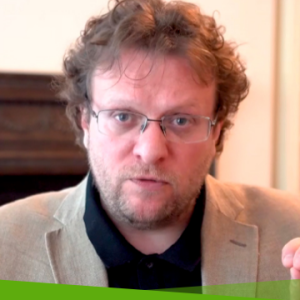

Peter Pomerantsev - Democracy and the politics of identity
Peter Pomerantsev, Senior Fellow at the London School of Economics, explores how democracy might face the information crisis.
About Peter Pomerantsev
"I’m a Visiting Senior Fellow at the Institute of Global Affairs of the London School of Economics and at the University of Johns Hopkins.
I research disinformation, hate speech and polarisation to try to work out what we can do about it."
The media “problem”
I always get confused when I look for a word that describes the scale of the issue that we’re talking about. I suppose you could just reduce this to a question about election rules or media; often, this is just talked about as a media problem. That’s not the right way to look at it. The internet is not a media space or even an information space. It’s just society. It’s everything. It’s where our schooling is and our relationships are. It’s not an information space issue that can be thought about purely in one government department. This is not just an issue for one ministry, like the often overlooked Department for Digital, Culture, Media & Sport in Britain. This is not just a culture, media and sport problem while the economy and healthcare and everything else ignores it. This is everything. This is how we organise ourselves. This is how we relate to ourselves as a society. So, the issues that have to be addressed are … everything.
Key Points
• The information, or misinformation, crisis cannot be dealt with from a media standpoint alone.
• The information crisis has permeated all aspects of society. This threat to democracy has to be addressed in all of our institutions, systematically.
• Individuals turn to smaller, tribal microcosms and close themselves off to deliberative conversation with others.
• Fortunately, it is still possible to find commonalities between groups that seem diametrically opposed.
More Episodes
All Episodes>>Create Your Podcast In Minutes
- Full-featured podcast site
- Unlimited storage and bandwidth
- Comprehensive podcast stats
- Distribute to Apple Podcasts, Spotify, and more
- Make money with your podcast












